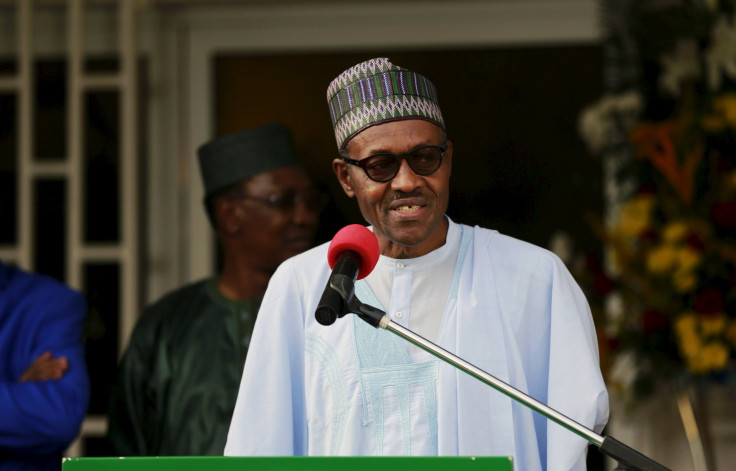Nigerian President Buhari To Meet Obama At White House About Boko Haram And 'Shared Priorities'

Nigerian President Muhammadu Buhari will pay a visit to the White House next month, when he is scheduled to meet with U.S. President Barack Obama July 20 to discuss Boko Haram as well as Nigeria’s economic and political reforms, the White House said in a statement Thursday.
“The visit will underscore the United States’ longstanding friendship with Nigeria, our commitment to strengthening and expanding our partnership with Nigeria’s new government, and our support for the Nigerian people following their historic democratic elections and peaceful transfer of power,” the White House press secretary's office said. “President Obama looks forward to discussing with President Buhari our many shared priorities including U.S.-Nigeria cooperation to advance a holistic, regional approach to combating Boko Haram, as well as Nigeria’s efforts to advance important economic and political reforms that will help unlock its full potential as a regional and global leader.”
The White House will also host Buhari’s senior advisers, who will meet with their U.S. counterparts in an effort to build ties between the two countries. Obama did not attend Buhari’s presidential inauguration on May 29, but U.S. Secretary of State John Kerry led an American delegation in his place.
“Nigeria’s profile has been on the rise since after the election, with the concession by Jonathan and the smooth transition that is going on,” Nigeria’s ambassador to the United States, Ade Adefuye, told the Premium Times newspaper in Abuja last month.
The United States has shown particular interest in the success of Nigeria’s elections. Obama urged Nigerian voters to insist on credible elections and denounced potential election-related violence, which marred Nigerian polls in the past. Immediately after the general elections, Obama congratulated the West African nation on “the strength of Nigeria’s commitment to democratic principles.”
In recent years, Nigeria’s former president, Goodluck Jonathan, met with Obama in Washington and New York, and Kerry met with the Nigerian government in Abuja. But Jonathan canceled U.S. Army training for the Nigerian army last December, which was intended to help the troops fight the Boko Haram militant group in northeast Nigeria. Buhari, a former military dictator, has said he would like to restore military ties with the United States.
“My administration will welcome the resumption of a military training agreement with the United States, which has halted during the previous administration,” Buhari wrote in an op-ed for the New York Times last month. “We must, of course, have better coordination with the military campaigns our African allies, like Chad and Niger, are waging in the struggle against Boko Haram. But, in the end, the answer to this threat must come from within Nigeria.”
© Copyright IBTimes 2024. All rights reserved.





















